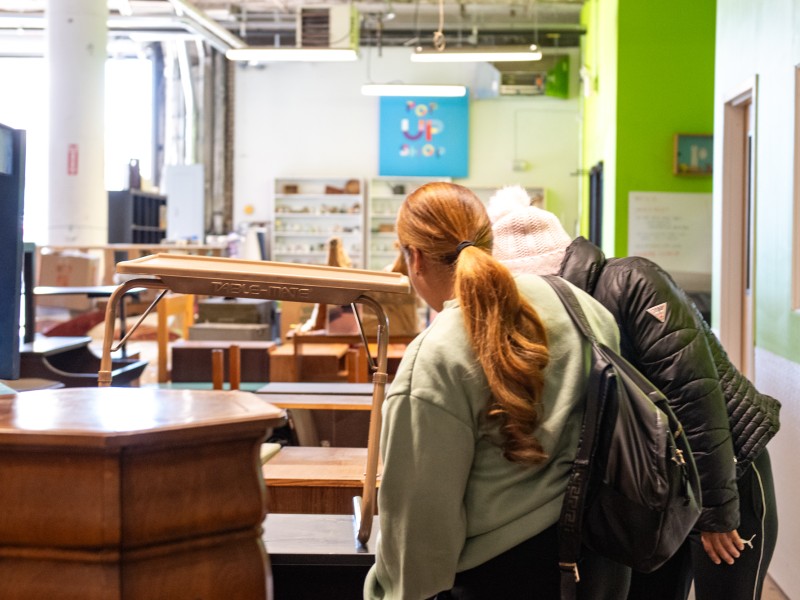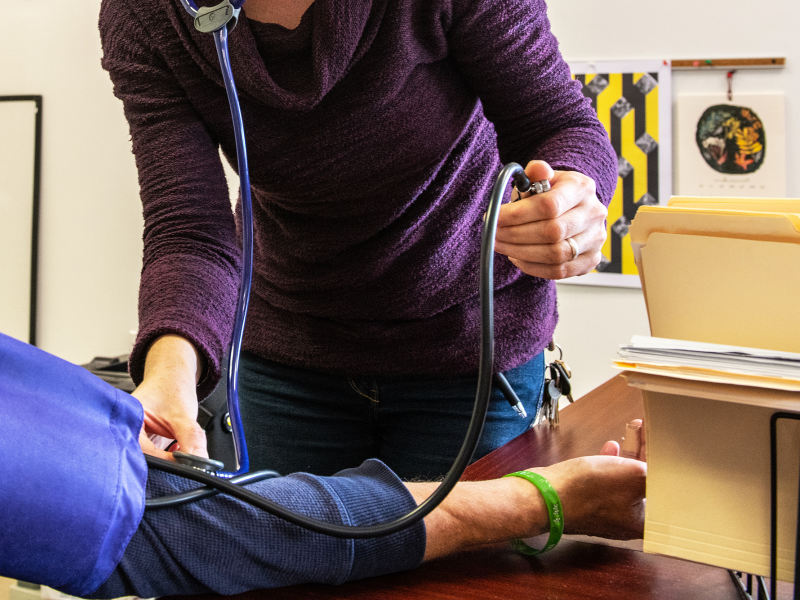At the Philadelphia Furniture Bank, Transitional Employment Helps Participants Rebuild their Lives
What does it take to make a meaningful life? We often say at Pathways that our goal is to help participants rebuild their lives after homelessness. That begs the question-what are the pieces needed for rebuilding? Our Transitional Employment Program began as one answer to that question.
When Pathways to Housing PA opened in 2008, our first priority was getting people off the streets and medically stable. Within a few years, many of these participants were taking medications on their own, grocery shopping and cooking for themselves. Yet many of them kept asking for the same thing; work. They wanted a way to make their own money, and they wanted to participate in one of the basic rhythms of life.
“Sometimes when we’re out in the warehouse, one of the guys will get a phone call, ‘Yo, I can’t talk right now-I’m at work,’ and you can just hear the pride in their voices.” Tom Maroon is watching out the window of his office as our Transitional Employment team arrives for the day. As the manager of Pathways signature program, the Philadelphia Furniture Bank, Tom works closely with the members of our Transitional Employment Team. He shifts his gaze to me. “They’re excited to pay taxes,” he tells me. “I mean-can you imagine? They want to pay taxes!”
In July of 2015, we identified a handful of individuals at Pathways to Housing PA who were interested in working, and were mentally and emotionally ready for the challenge. These men and women were hired by Pathways to work for two to three days a week at the Furniture Bank. Each set specific goals around the skills they hoped to learn, and revised these goals throughout the year. Last July, we proudly graduated this team, and sent them out to find jobs in the competitive marketplace.
Keith is a member of the 2nd team to be hired at the Bank. “I love coming in here,” he says. “I’d work every day, if they’d let me.” He’s become good friends with his coworkers, and he saves the money he makes to spend on his daughters. “I like helping people.” This ability to give back by delivering furniture to men and women in need is one of the many intangible benefits of having his job.
Pamela, another employee, agrees that the work is meaningful. I speak with her as she's loading a cart with piece after piece of furniture, then rolling it into our hot box for sterilization. "I like being on my feet," she says. "I think after this I'll look for a job that's active."
The reason Transitional Employment exists, the reason we don't simply help our participants apply for jobs, is that many aren't ready. Learning to be on time, calling out if you’re sick, and working through frustrations with coworkers are skills that need to be developed. “One of the biggest differences for our people,” Tom tells me, “Is that little things can take them down: An aunt gets sick, their grandma dies-that can leave someone depressed for months.” Tom and his team work closely with case managers at Pathways to ensure our Furniture Bank Staff are supported through these transitions, and learn skills to handle personal challenges while continuing to work.
When all is said and done, life is not a formula. Four walls, a roof and a job does not equal happiness. But when a job helps you develop a sense of pride, give back to your kids or your community, and arrive home at night tired and satisfied, you've grabbed hold of some of the things that really do make life worth living.
To help support our Transitional Employment team, you can donate by clicking here. You can also purchase tickets here to attend our Chair Affair, a fun filled night to support the Philadelphia Furniture Bank.


